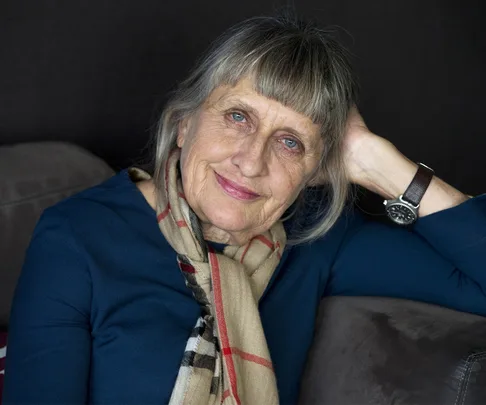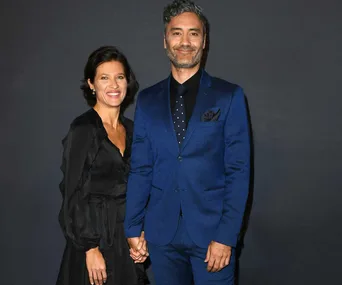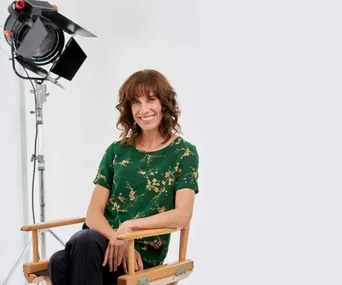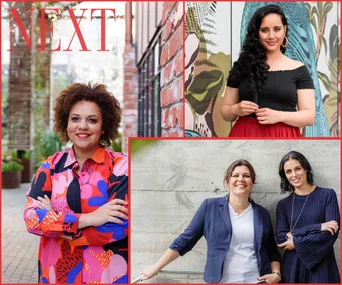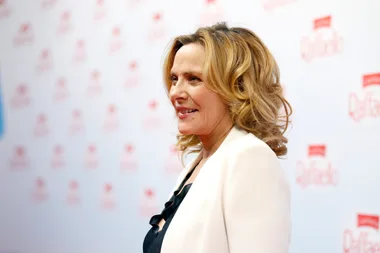Robin Scholes is one of our most prolific visual storytellers.
She is the woman behind one of the most successful New Zealand movies of all time, and the valiant survivor of a particularly vicious home invasion.
Yet she remains largely an enigma, preferring to fly under the radar, not seeking publicity for herself.
She is strong, independent and determined, attributes that are due in no small measure to her early beginnings.
“My dad wanted a son, that’s why he named me Robin with an ‘i’. He gave me boys’ toys. I had a big Meccano set and a Hornby train set that I would spread out all over the living room. It was an extraordinary start. There was no gender agenda in my house.”
The only child of Charles Terry Fletcher and Dorothy Kidd, Robin grew up in a state house in the Auckland suburb of Orakei.
“It had a huge section, lots of trees; I spent hours outside exploring and digging out roads with my trucks. I lived in a world of my imagination. One day Mum decided I should go to Sunday school, so I could have some sort of religion in my life. I stayed one minute. I told her if there was a God, he wouldn’t want me to be inside on a beautiful day like this.”
She grins at the memory.
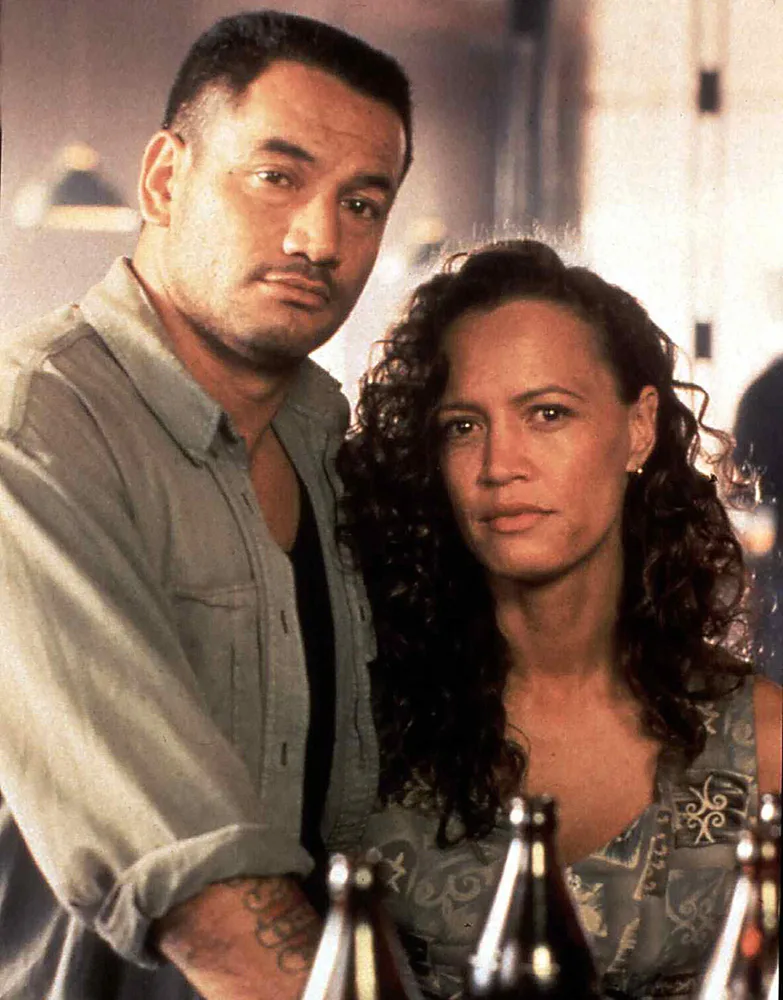
Temuera and Rena Owen in Once Were Warriors, the 1994 blockbuster produced by Robin
An Englishman, her father had worked his way to New Zealand as a ship’s stoker. Her mother, who was born in Papatoetoe, left school at 12.
“We had a difficult relationship,” says Robin.
“She was very strict; an element of her was closed, like many of her generation. She was not a communicator.”
Charles would eventually set himself up as a photographer in Napier but he lost his studio in the earthquake of 1931 and went on to establish a successful business back in Auckland, selling Irish linen for bridal trousseaus. He died prematurely, of TB, when Robin was just five.
Her mother went to work full time in the linen business and Robin was handed into the tender care of Grandma Rowe, a Māori woman she remembers fondly, who lived close by.
Robin’s parents had one goal for their only child, and that was that she be educated.
“I grew up with a strong work ethic in a working-class family. The wider family was suspicious of education – my uncle Ernie thought education would be no good for me. It separates you out, makes you different from the rest of the family. You don’t quite fit in that world any more, neither do you feel you really belong in the educated world.”
She left home at 16 and began working in the family firm.
“I was a travelling salesperson.”
It turned out she was really good at it.
“It’s all about closing the sale,” she grins.
She’s quick to grin, and gives herself up often to a throaty chuckle.
That early grounding in salesmanship would stand her in good stead later various film and television projects.
She is widely respected in the industry as someone with the tenacity to get things done and particularly for that ability to close a deal.
In those early days after leaving home, Robin found herself flatting with artist Barry Lett above his new gallery in central Auckland.
Inevitably she mixed with some of the leading artists of the time, among them Colin McCahon, Pat Hanly and Hamish Keith, and they would awaken in her a lifelong passion for art.
She found she had a natural instinct for it.
“I was inspired by Peter Tomory, the then director of the Auckland Art Gallery. He encouraged me and it became my ambition to get a degree in Art History and teach.”
She duly enrolled at Auckland University.
Robin was just 20 when she married Jeff Scholes, whose father, Eric, owned an art gallery in Rotorua that also represented many of New Zealand’s leading artists. The marriage lasted just two years.
“We were far too young,” she says, with the wisdom of hindsight.
She finished her degree and studied in London and Edinburgh before returning to Auckland University in the early 1970s to become the only woman lecturer in the art history department.
In fact, she was one of very few female senior lecturers in the entire university.
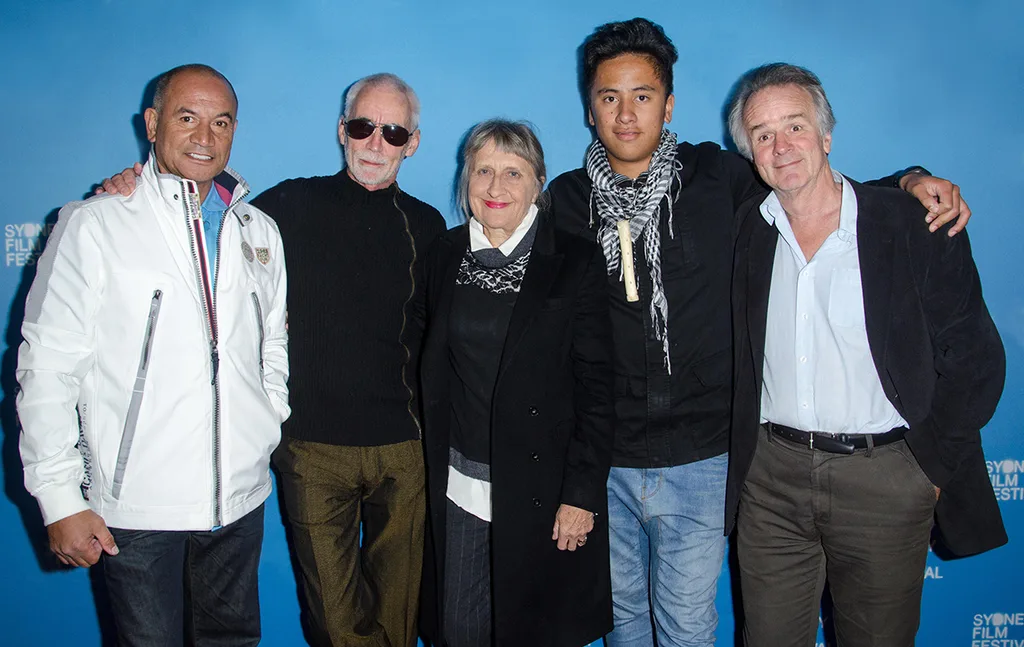
Robin at the 2016 Sydney Film Festival premiere of Mahana with (from left): actor Temuera Morrison, director Lee Tamahori, actor Akuhata Keefe and writer John Collee.
She was increasingly drawn to film and would make movies alongside her work as a lecturer.
A second marriage followed, to architect, Hunter Gillies. Robin had taken a sabbatical from lecturing and the couple moved to Dunedin for a year.
It was here she began her work in television.
In an act of positive discrimination in International Women’s Year (1975), TV producer John Barnett gave her a job as a camera operator on the documentary Some of My Best Friends are Women. It led to a series.
Robin went on to direct for the newly-established Natural History Unit in Dunedin and to her delight, won a Feltex award for her first directorial outing – the 15-minute feature Hidden Places: O-ka-rito.
Her marriage, though, didn’t last.
Robin returned to Auckland to work for the television arts programme Kaleidoscope, and to care for her ailing mother.
Her television career went from strength to strength. Initially focusing on documentary making, she then joined forces with journalist and entrepreneur Neil Roberts and became a founding partner of the independent television company Communicado.
She produced a formidable body of work at Communicado. Among her credits, the television series Magic Kiwis and Heroes, the TV drama Greenstone and info series Business World.
She also produced the movies Once Were Warriors and Broken English.
After overseeing Communicado’s merger with Australian company Screentime, Robin took a senior role at Julie Christie’s Touchdown.
Now an independent producer, she continues to be a driving force in the New Zealand film and television industry and is much sought after as a mentor to a new generation of film-makers.
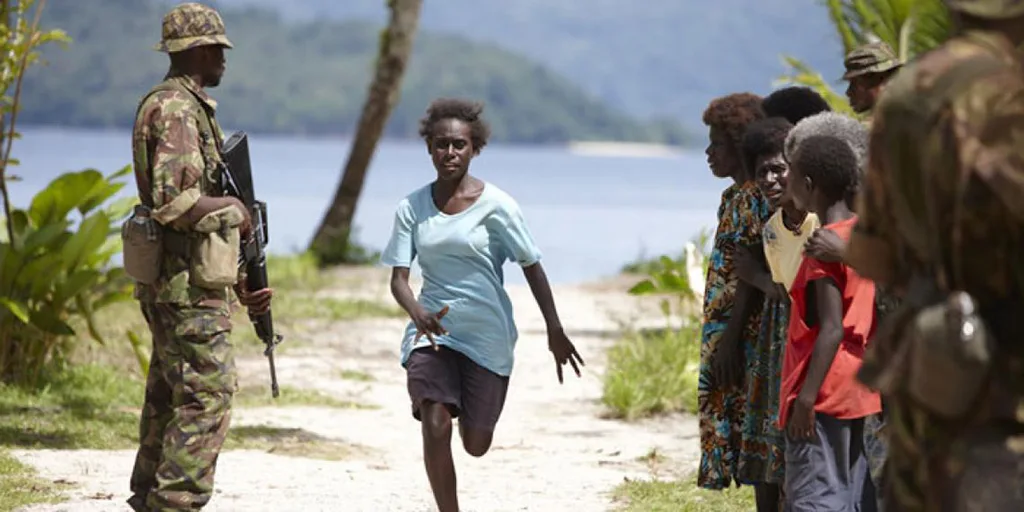
Robin also worked on the 2013 film Mr. Pip.
After the breakdown of her second marriage, Robin remained single until she met the love of her life, Italian architect Ivano Bargiacchi, in 1984.
They would be soul mates from the beginning. It was, as she says, both the best and the worst of times.
The day after their first date, Robin’s home was invaded by the notorious rapist, Mark Stephens, also known as the Parnell Panther.
He beat her savagely and left her for dead. When she came to, she managed to crawl to her neighbour for help, unrecognisable but for her jersey.
“Ivano was one of the few people who had the guts to come and see me in hospital. I was lying there with my face swollen and no teeth and he came in smiling, holding a bunch of yellow flowers.”
Remarkably, she laughs heartily at the memory.
“You know, out of the worst moments come the best teachings. I learnt how to be vulnerable and really need someone. Life was never going to be the same but out of it all came additional strength.
“You have to make a decision. I was determined not to be a victim. It’s not that it doesn’t hurt. As with anyone who has suffered trauma, things will trigger visceral memories. I choose not to focus on those.”
It was that determination to find something positive to take from the attack that led to her seeking out a film project that would reflect a woman’s struggle to survive violence.
She famously found it, in the screen adaptation of Alan Duff’s novel Once Were Warriors.
“I was looking for a vehicle to show the physical damage a woman suffers.”
Beth Heke’s story fitted the bill, particularly the storyline of Beth overcoming that sense of being a victim at the hands of Jake the Muss.
She was initially told she shouldn’t make it “because it would show Māori in a bad light”.
How could she convince the Film Commission board to fund the project? The solution came out of reading a story about then Gisborne police commander Rana Waitai.
She and director Lee Tamahori approached Rana, who consequently fronted up to the commission in full police regalia to tell them a few home truths.
“We will never grow up as a nation if you do not fund this film,” he told them.
The rest is movie history.
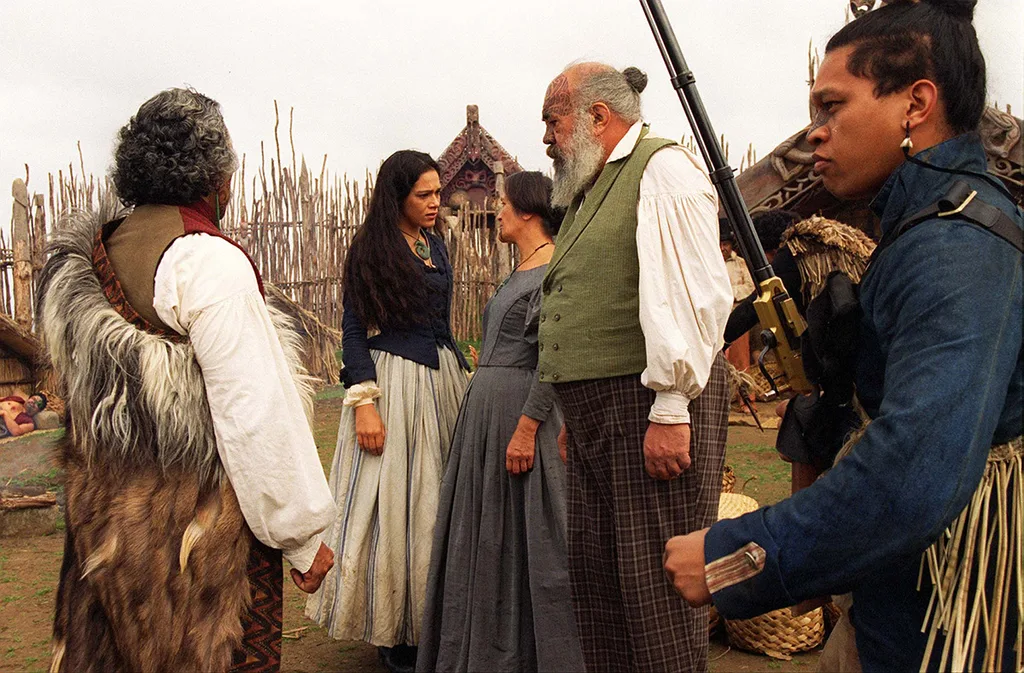
Robin produced the TV drama Greenstone during her time at Communicado.
You don’t often hear Robin’s name associated with Once Were Warriors – it’s generally described as a film by Lee Tamahori, or a story by Alan Duff – but it was Robin who had the vision to option the book and Robin who produced what is now arguably the most iconic New Zealand movie of all time.
She is typically modest about her achievement.
“If you’re a good producer, it always becomes someone else’s project. As a producer, you’re ultimately the least important person in the room.”
She has continued her passion for movie making with Mahana, The Tattooist and Mr. Pip, as well as a raft of documentaries and drama series for television, and in 1995 was awarded an OBE for services to the film industry.
Robin and Ivano had 30 years of happy marriage.
Ivano came to their partnership with three children from a previous relationship. They decided not to have children together and instead concentrated on their work and their four grandchildren and three great-grandchildren.
They moved frequently, notching up 13 houses in 30 years – the perils, perhaps, of being married to an architect!
Their shared love of art saw them gather a significant collection of contemporary New Zealand works, many of which have recently gone under the auctioneer’s hammer.
Robin indulged her passion for horses on a property at Clevedon in the south-east of Auckland, but when sickness caught up with Ivano they were forced to move back to the city where Robin now lives in an old villa.
Ivano died in the autumn of 2013, leaving Robin alone again and devastated.
Her In Memoriam notice for him three years later gave voice to her desolation: “Thank you for loving me. I didn’t realise how vulnerable I would be without you. You did everything you could to make sure peace prevailed after you died but sadly, it didn’t happen. I conjure you up, to hold my hand, to give me strength, but anxiety and insecurity are a constant presence in my life now.”
There is still a sadness about her but she chooses to forge ahead and keep busy.
During his illness, Ivano had insisted she keep working so she would have something to fill her life once he was gone.
“I would have retired by now had my husband been alive. Now, because I’m a widow, that’s the main reason for continuing. I’m trying to do fewer things, and I’m travelling and socialising more. I’ve got some great projects coming up.”
She’s currently hard at work on her next drama, the David Bain story. It takes a deeper look at the Bain family as a whole.
She is also developing a second series of the TV drama The Bad Seed and is working on a story about arson, kidnapping and murder in the small East Coast town of Ruatoria, again a collaboration with Warriors’ director Lee Tamahori and based on a true story.
“The thought is, all the time, can I still do this? Is this something worth doing? I’m choosing things that I hope are important to make.”
